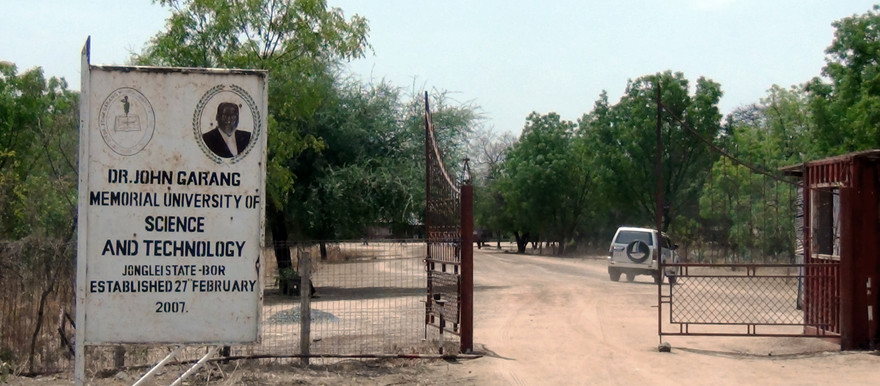A group of students hold demonstrations against raised tuition fees at the Dr. John Garang Memorial University of Science and Technology in Bor on Thursday, March 30. The protesting students called for the removal of the vice chancellor and his deputy.
University Teaching Staff Chairperson, Dr. James Nyok Deng, immediately suspended all lectures. “The Office of the Teaching Staff Association suspended classes due to this confusion until further notice,” he said.
A student representative, who prefers to remain anonymous, said that the protestors were angered by the high tuition fees. “What prompted the strike is the fee. We requested to lift this fee but they refused,” he said, adding that “they are pressurising us on fees the president has not accepted”.
South Sudan’s Ministry of Higher Education issued a list of tuition fees for all public universities on October 6, 2016. The list was intended to avoid rising tuition fees, making higher education more affordable for students and their parents.
“The rest of the universities accepted. Why should Dr. John Garang University be unique? We have to be treated equally, we are all government students,” the student representative said.
The fees were increased from SSP 2,000 to SSP 7,000, according to the students, who accused the administration of turning the university into a private business.
Conditions at the university are also not conducive. Abrahm Mading, a management student, said they are sharing teaching halls with high school students inside the university. “This secondary school should be evacuated, because we were promised that it has to be after six months.”
In view of South Sudan’s violent conflict and troubled economy, government institutions fight for the limited resources available, and education has not fared well. Spending on higher education has consistently remained below one percent of the government’s total budget.
However, “the country’s five national universities continue to provide education to approximately 19,000 undergraduate and 1,000 postgraduate students, as well as rendering other vital services to the wider polity”, writes Kuyok Abol Kuyok in an article for Times Higher Education.
Photo: The gate of the Dr. John Garang Memorial University of Science and Technology in Bor, February 23, 2017. (© Radio Tamazuj)




